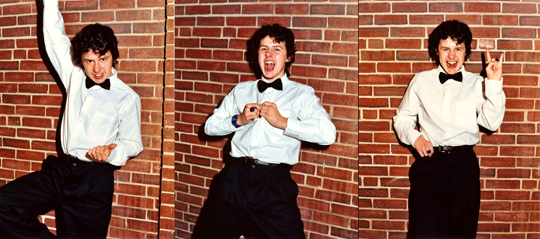

Reviews of Recent Independent, Foreign, & Documentary Films in Theaters and DVD/Home Video
Directed by Jennifer Venditti. Produced by Chiemi Karasawa & Venditti. Director of Photography, Donald Cumming. Edited by Michael Levine & Enat Sidi. Music by Christian Zucconi & Guy Blakeslee. Released by Elephant Eye Films. USA. 85 min. Not Rated. Billy the Kid, the story of a 15-year-old outsider dealing with life and love in small-town Maine, won awards at four festivals. Director Jennifer Venditti met Billy when she was scouting schools for extras for another movie. She was entranced and disarmed by him, and decided to make him the subject of her debut feature, this coming-of-age documentary celebrating the underdog. During the first 20 minutes, I saw what all the festival hype was about – Billy's life is so awkward, so classically and painfully teenage, that most viewers will cringe and laugh with recognition. Although Billy has Asperger’s syndrome, a diagnosis not mentioned in the film, his failed attempts to connect with other kids, his bad heavy-metal guitar performances, his memories of childhood trauma, and his weird stabs at conversation with his first love are relatively universal teen experiences. Initially, it seemed as though Billy might become a sort of real-life Napoleon Dynamite, a triumphant geek finding love and the secrets to happiness. But eventually, I felt trapped in Billy’s world. It’s grim to be Billy, agonizing really, although Venditti sees a beauty in his life, in his uniqueness, and in his touching desire to be a hero. Watching the film, I understood the portrait she was trying to create, and I wanted to get on board. I really wanted to feel the magic of Billy, but instead, at the film’s blandest moments, I found my attention drifting, and at the film’s strongest moments, I felt trapped. I wanted to leave Billy’s head, Billy’s world, and especially Billy’s insular, dead-end community. Venditti has clearly built a relationship with this kid, but she superimposes a coming of age, a love story, and a transition to manhood on a life that actually suffers from stasis and insularity. It looks like Billy is being transformed by the presence of the camera much more than is de rigueur for subjects of similarly intimate films. His love story with Heather - a local waitress with her own disorder, a condition that causes her eyes to flicker and affects her vision - is helped along by the fact that Billy is the subject of a film. A scene where Billy takes Heather “somewhere private” and asks her to be his girlfriend, then emerges to the applause of a large group of old men, feels like it might not have happened without Billy being something of a temporary celebrity - he might not have even gotten so far talking with Heather, or anyone else, for that matter. In a later scene, when Venditti interviews Heather alone about her feelings for Billy, the girl mumbles, “I don't know, I don't know,” and seems to want to disappear.
While some documentaries thoroughly enter the lives of their subjects,
showing their deepest truths up close, Billy the Kid makes its protagonist the star of a story that doesn't quite fit, ultimately leaving me
wanting both more and less.
Elizabeth Bachner
|